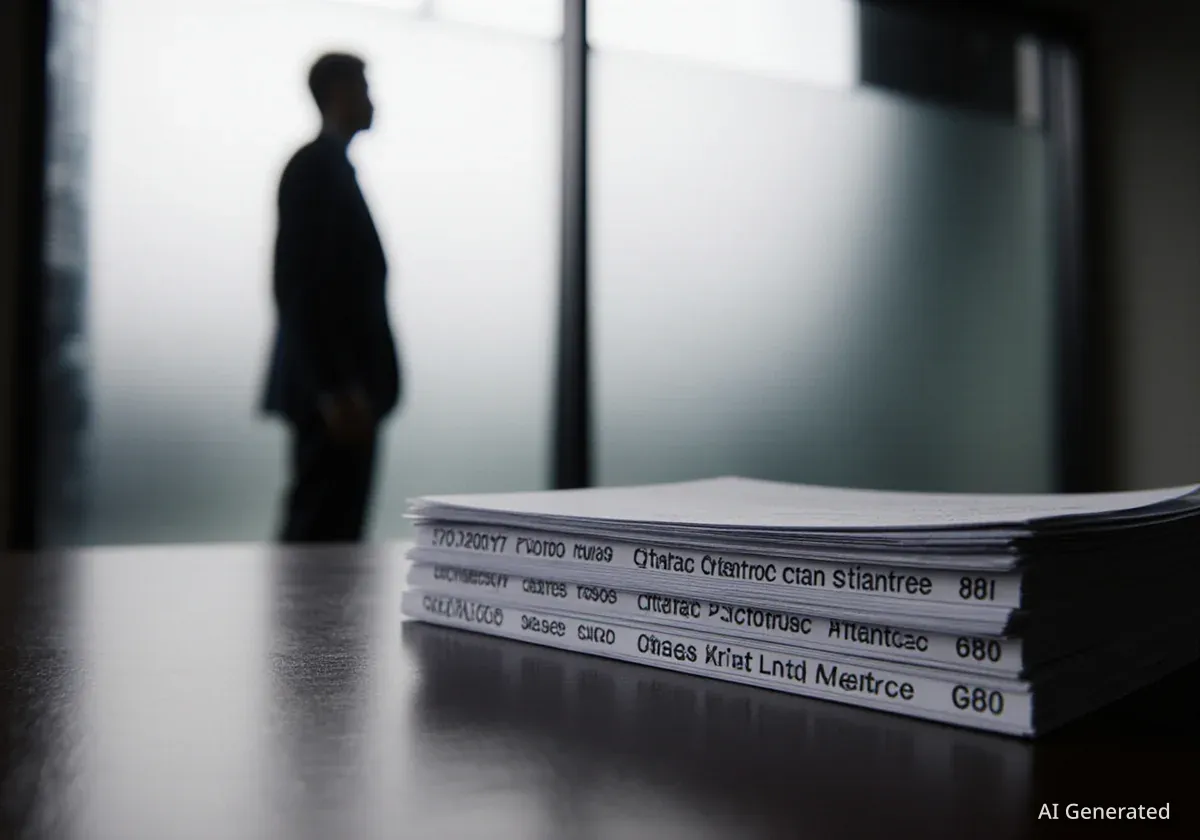South Korea's National Tax Service (NTS) has initiated a significant tax investigation targeting 710 individuals suspected of tax evasion related to high-value real estate transactions. The probe focuses on luxury apartment purchases where the source of funds is unclear, part of a broader government effort to ensure fairness in the tax system and address concerns over soaring property prices.
In a press briefing, officials confirmed that the investigation is a response to a growing number of suspicious property deals, particularly those involving young buyers with insufficient reported income. As part of its initial actions, the agency has already seized approximately $900,000 in assets from individuals identified as delinquent taxpayers.
Key Takeaways
- South Korea's National Tax Service is investigating 710 individuals for suspected tax evasion in luxury real estate deals.
- The probe specifically targets buyers whose declared income does not match the value of their high-end property purchases.
- Authorities have already seized around $900,000 in assets from some of the individuals under investigation.
- The crackdown extends to corporations, including e-commerce giant Coupang, and transactions with international links.
Details of the Tax Investigation
The announcement was made by Park Jong-hee, the head of the property tax bureau at the National Tax Service, during a briefing at the government complex in Seoul. He outlined the agency's commitment to scrutinizing transactions that appear to exploit legal loopholes or involve undeclared wealth.
The investigation is not limited to a specific region but covers high-value properties across the country. The NTS is using sophisticated data analysis to flag suspicious transactions, comparing property acquisition costs against the buyer's official income and tax payment history.
Focus on Unexplained Wealth
A primary focus of the probe is on individuals who have acquired expensive homes without a clear, legitimate source of funds. This includes young adults and those with low reported earnings who have recently purchased properties worth millions of dollars.
Investigators are examining whether these purchases were funded by undeclared cash gifts from family members, which would be subject to South Korea's high gift tax rates. They are also looking into cases where business owners may have diverted corporate funds for personal real estate acquisitions without paying the appropriate income or dividend taxes.
Background: South Korea's Real Estate Market
The investigation comes amid years of public concern over the rapid increase in housing prices in major metropolitan areas like Seoul. The government has implemented numerous measures to cool the market, but prices for desirable apartments have continued to climb, raising questions about affordability and equitable wealth distribution.
Common Evasion Tactics Under Scrutiny
The NTS has identified several common patterns of suspected tax evasion that it will be targeting during this intensive probe. These methods often involve complex financial arrangements designed to obscure the true source of money used for property purchases.
- Undeclared Family Gifts: Parents providing substantial funds to their children to buy homes without filing a gift tax return.
- Use of Corporate Funds: Business owners using company money for personal asset purchases and misclassifying the transactions as business expenses.
- Loans from Private Lenders: Individuals taking out high-interest private loans to mask the use of illicit or untaxed income.
- Offshore Accounts: Funneling money from overseas accounts to fund property deals while avoiding domestic tax obligations.
Each of these methods is a serious violation of South Korean tax law. The agency has stated it will pursue both the unpaid taxes and applicable penalties, which can be severe.
A Wider Economic Picture
This tax probe is taking place as South Korea's economy shows signs of strength in other areas. The country's exports reached an all-time high of $66 billion in September, largely driven by strong performance in the semiconductor and automotive sectors. This economic activity generates significant corporate and individual income, which the NTS is tasked with monitoring for tax compliance.
Corporate and International Cases
The crackdown is not solely focused on individual homebuyers. The NTS confirmed that several corporations are also under review. Notably, e-commerce leader Coupang is facing a separate investigation for potential tax evasion, signaling that the authorities are taking a hard look at the tax practices of large, successful companies.
Furthermore, the NTS is paying close attention to tax evasion schemes with an international dimension. This involves scrutinizing individuals who may be using foreign entities or offshore accounts to hide assets and income from Korean tax authorities before repatriating the funds to buy domestic real estate.
Government's Stance on Tax Fairness
The ongoing investigation reflects a broader policy goal of the South Korean government to promote tax fairness and crack down on the underground economy. Officials have repeatedly stated that they will not tolerate tax evasion, which they argue undermines public trust and creates an unfair burden on honest taxpayers.
"We will thoroughly verify the funding sources for luxury real estate purchases and strictly enforce tax laws against any identified evasion," stated Park Jong-hee during the press conference, emphasizing the agency's resolve.
The probe into real estate is part of a multi-faceted approach. The government has also recently voiced concerns over rising food prices, suggesting a willingness to intervene in various sectors of the economy to ensure stability and fairness for the general public.
Implications for the Real Estate Market
This large-scale tax investigation is expected to have a chilling effect on speculative and illicit activities within the luxury property market. Real estate analysts suggest that the increased scrutiny could lead to a temporary slowdown in high-value transactions as potential buyers and their financial backers become more cautious.
For individuals who have complied with tax laws, the investigation is unlikely to have a direct impact. However, it serves as a strong reminder of the importance of transparent financial reporting, especially in significant transactions like property acquisition.
The NTS has encouraged voluntary compliance and has indicated that the investigation will be rigorous. The outcome of the probe will likely result in substantial back-tax assessments and penalties for the 710 individuals and any corporations found to be in violation, reinforcing the message that tax evasion will not be overlooked.





